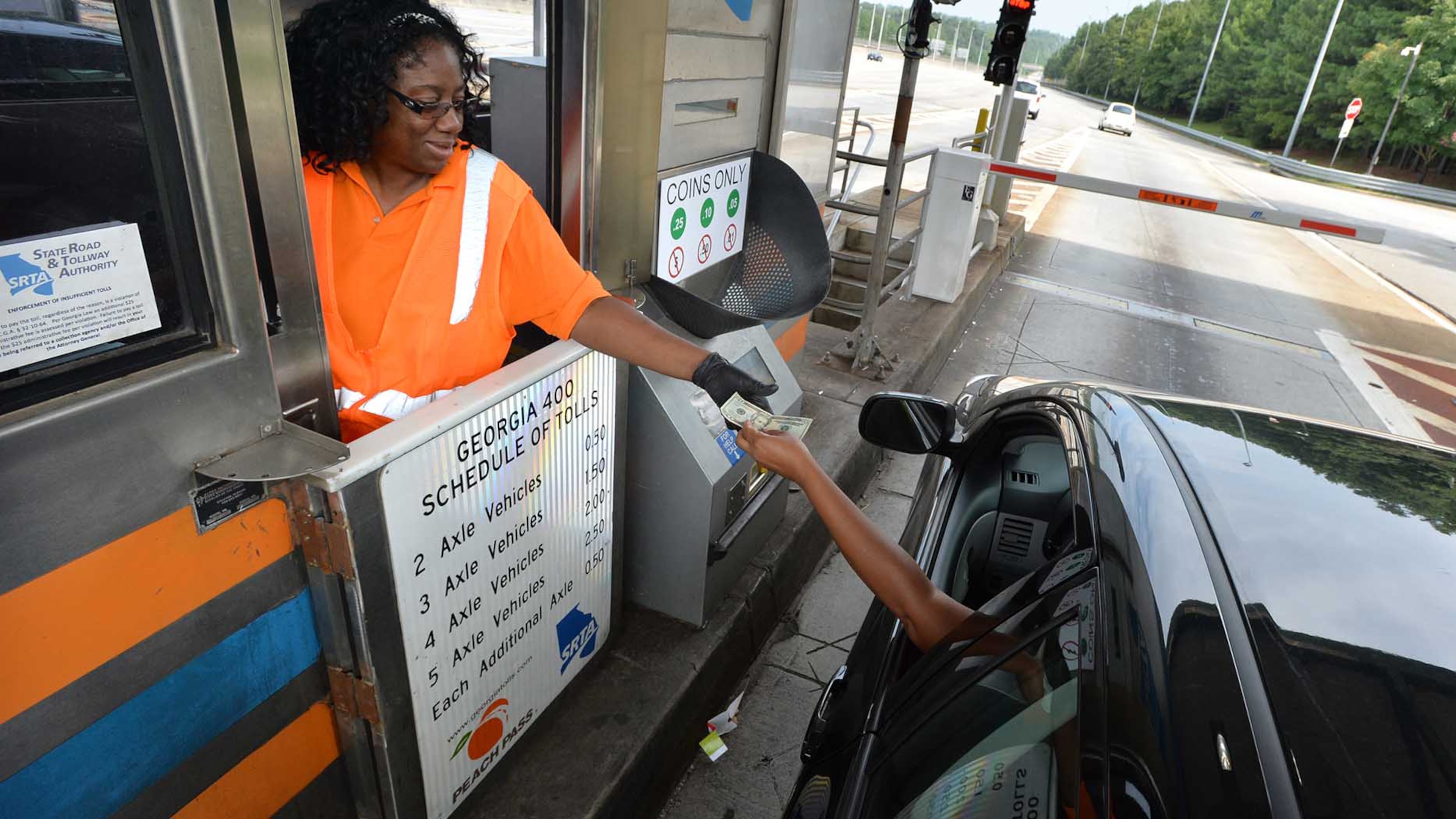Charity at the toll booth? Not anymore on Ga. 400

Good Samaritans, take your charity someplace else. It’s no longer wanted at the Ga. 400 toll plaza.
Countless drivers over the past 20 years have “paid it forward” by donating 50 cents to pay the toll for the person behind them in line. But no more, after some good-doers began to wonder where their coins were really winding up.
Three weeks ago, toll-workers were advised by Abacus Corp., the Maryland-based contracting company that collects tolls for the state, that they could no longer accept such contributions. Since then, toll-takers have been required to return all change to the paying driver.
Rick Sanderson, 58, of Peachtree City, said he learned of the new policy last week. He said he tried to pay for the driver behind him and was informed by the cashier, “That’s not allowed anymore.”
“In what sort of world do we live?” Sanderson said. “We can’t even do a random act of kindness?”
The reason for the policy change? Some drivers complained that cashiers were stealing the change when they didn’t see their quarters bring tossed in the coin basket for the driver behind them, said Bert Brantley, deputy executive director of the State Road and Tollway Authority.
At least six driver complaints were received in the last few months. That convinced state officials that allowing their cashiers to facilitate good deeds was more trouble than it was worth. The decision to end the practice was for the protection of both drivers and toll-workers, Brantley said.
“When it’s only one complaint every once in a while, it’s not a big deal,” Brantley said. “But we had repeat incidences of customers not believing that their pay-it-forward gesture was actually making it forward.”
What often happened when donating drivers could not see their gifted 50 cents going into the basket, according to Brantley, was that the designated recipients decided to pay for themselves and passed along the donation to the next driver, creating an automotive chain of goodwill.
And this is the road local convention and visitor bureaus named the Hospitality Highway?
There’s no tracking system for driver complaints of this sort. But the number of gripes received this year did seem higher than in years past, Brantley said. He speculated that the increase may correspond with an uptick in toll donations that has occurred since it was announced the toll-taking will end in three months.
“Before, people were so mad that the tolls were staying, they didn’t want to pay for their own toll, much less anyone else’s,” Brantley said. “But now that they are going away, there’s a change in attitude about the whole operation.”
The tolls were originally due to end in 2011, but former Gov. Sonny Perdue extended them so the state could make use of the $20-million-per-year collection to finance other highway projects.
State transportation officials announced earlier this year that toll collection are scheduled to end Nov. 21, after which the highway will be free to all. The toll booths will be demolished in 2014.
Brantley said he was not aware of similar policies in other states forbidding drivers from donating to each other. Across the country, fewer and fewer states are accepting cash payments for tolls because they are switching to electronic billing, like the Peach Pass system in Georgia.
In years past, companies like the Atlanta Hawks, Carvana.com, McDonald’s and Maxwell House have paid drivers’ tolls to promote various products, but no more corporate promotions are scheduled between now and November.
Many drivers say they are dismayed by the grinchy policy, short-lived though it may be.
“If (other drivers) are offering to be nice in this day and age, I would not try and shut that down,” said Bethany Miller, 23, of Atlanta. “We need as much niceness in the world as we can get.”

